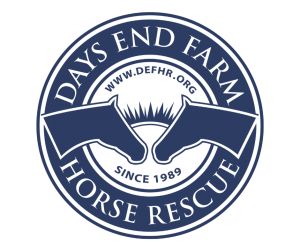FAQ
The Maryland Equine Transition Service (METS) is a statewide equine safety net initiative that provides alternatives for horses needing homes by helping owners identify and select the best transition options.
A horse can find itself in transition, on average, seven times in its lifetime. Horses in need of transition come in every shape, size, breed, color, age, training level, and temperament. Some may be more difficult to rehome than others, especially if a horse is older, has a medical condition or injury, or lacks training.
Rescues are often at or near capacity and most have specific intake criteria. Retirement and companion homes can be difficult to find. Public auction often appears the only remaining option, but selling at auction means an uncertain future. Owners may be unaware of the choices they have when they can no longer care for their horse and METS can give them better, safer options.
Rescues typically accept horses that are in a current state of neglect or danger. Very few will accept owner surrenders. Rescues take ownership of the horse, provide rehabilitation, then seek potential adopters.
METS accepts calls from any owner that needs to rehome a horse for any reason.
METS does not have a facility and does not take ownership of horses. Rather, METS helps owners transition their horses by offering several services, including equine assessment, marketing assistance, facilitating placement, and providing end-of-life options.
Our overarching goal is the same: to keep horses from ending up neglected or in the slaughter pipeline. METS achieves this by connecting owners with the right option for their horse.
No. The service is not a brokerage service, rather an educational service that provides owners with the assistance they need to make the best decisions for their horse.
The program focuses on rehoming horses that have a market value less than $2500. Owners who wish to sell their horse for more than $2499 are welcome to call METS for a phone consultation, but will not be eligible for the other program services.
Yes and no. Horses will be assessed and the owner will be provided with transition options free of charge.
Other services will be based on the expected sales price and/or the owner’s capacity to pay forservices. METS is currently available to owners who wish to sell their horses for less than $2500, although that limit may change. No owner will be turned away for lack of resources, and METS has a process to provide financial assistance.
METS is a program of the Maryland Horse Council Foundation (MHCF), the horse industry’s state legislative representative and trade association. Start-up funds for METS were provided through a grant by The Right Horse Initiative. The program’s sustainability depends on fees-for-service, tax-deductible donations by individuals who value equine welfare, business sponsorships, and industry support. If you are interested in making a tax-deductible contribution, click DONATE at mdequinetransition.org or call the MHC at 844-634-6773.
No. At this time, METS works solely with owners who keep their horse(s) in Maryland. Horses in the program may end up at an out-of- state location.
METS will know how many horses are rehomed by owners who take advantage of the program’s marketing assistance, but METS does not have the ability to track these horses long term.
Those who take a METS horse have the right to rehome a horse and have agreed to include a no auction / slaughter clause in their bill of sale. METS recognizes that these contracts are not always binding and that the owner has the legal right to rehome a horse as they see fit. The only way to truly ensure that horses are not sent to auction is to maintain ownership of the horse.
METS does not have the ability to take ownership of a horse, therefore, our policies are written to strongly encourage the most humane practices when it comes to the horse’s next transition.
No. It is METS’ goal to prevent equine neglect by giving owners a resource to place their horses before they get to a point where they can no longer provide them with proper care. If it is determined that an owner is intentionally or repeatedly neglecting horses, a report will be made to the local animal control agency for investigation.
METS will absolutely take your call, but the staff will refer you to the proper authorities. In the State of Maryland, suspected cases of abuse or neglect should be reported to the animal control organization or humane society for the county in which the horse is located.
Days End Farm Horse Rescue maintains an updated list of animal protection authorities and lists the information you should have available when making the call. See https://www.defhr.org/learn/resources/report-abuse/ for details.
METS has adopted the Right Horse Initiative’s Euthanasia statement. METS is not in the business of euthanizing horses. METS is in the business of educating owners about the best transition options available to them and their horse. In some cases, euthanasia is the most humane option and the only guarantee that the horse will not suffer an uncertain future.
Decisions regarding euthanasia are not made without thorough review and careful consideration. METS has specific standards and protocols for making these decisions following guidelines by the American Association of Equine Practitioners with approval of a veterinarian.
No. METS can provide financial assistance for owners who transition their horse through the program if they demonstrate financial need.
There are other resources in the state and nationally to assist owners with short-term financial hardships. METS will refer owners to these resources.
METS is a new program and the staff is collecting information to determine the actual needs of owners in Maryland. The preliminary goal is to provide phone consultation to 140 owners and physically assess and assist with the transition of 80 horses in the first year. The numbers are expected to double by year three.

